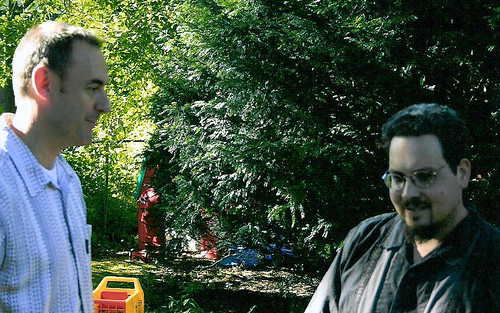🦋 Doctrine
As so often happens, I find myself confused about church teaching. (It is not my church, but I always seem to understand Christianity less well than I think I do or think I should.) Near the beginning of Death with Interruptions, the prime minister gives a pompous and meaningless speech which ends with an invocation of God: "We will accept the body's immortality, he exclaimed in exalted tones, if that is the will of god, to whom we will always offer our grateful prayers for having chosen the good people of this country as his instrument." A little bit later, the Cardinal phones him, quite angry at his implication that God would will the destruction of the body: "You admitted the possibility that the immortality of the body might be the will of god, and one doesn't need a doctorate in transcendental logic to realize that it comes down to the same thing." I've got to be missing something here; everything I've taken away from reading about Christianity suggests that it's a fundamental tenet, that God wills the destruction of flesh in general and that God willed his own demise in the particular case of the crucifixion. So I'm kind of struggling here to figure out what Saramago has in mind.
 Update: Thanks to correspondence with badger and his friend Bill, I am starting to see the error of my ways. Bill identifies my statement that "God wills the destruction of flesh in general and that God willed his own demise in the particular case of the crucifixion" as Gnostic doctrine, not Christian. I think I'm fundamentally confused about the nature of death in Christian thinking -- I was building off the statement that "to dust you shall return" to get that God was willing the destruction of flesh; but apparently the doctrine of eventual Reincarnation means that the flesh is not destroyed. (I thought when the Cardinal said "without death there can be no resurrection" that he was referring to Christ's resurrection but now it seems like he was talking about the end-times resurrection of the faithful, something that was totally slipping my mind before.) Bill also notes that "Knowing Saramago, though, he's not above having ecclesiastical figures
spout nonsense."
posted evening of Monday, September 15th, 2008
➳ More posts about Death with Interruptions
➳ More posts about José Saramago
➳ More posts about Readings
| 
